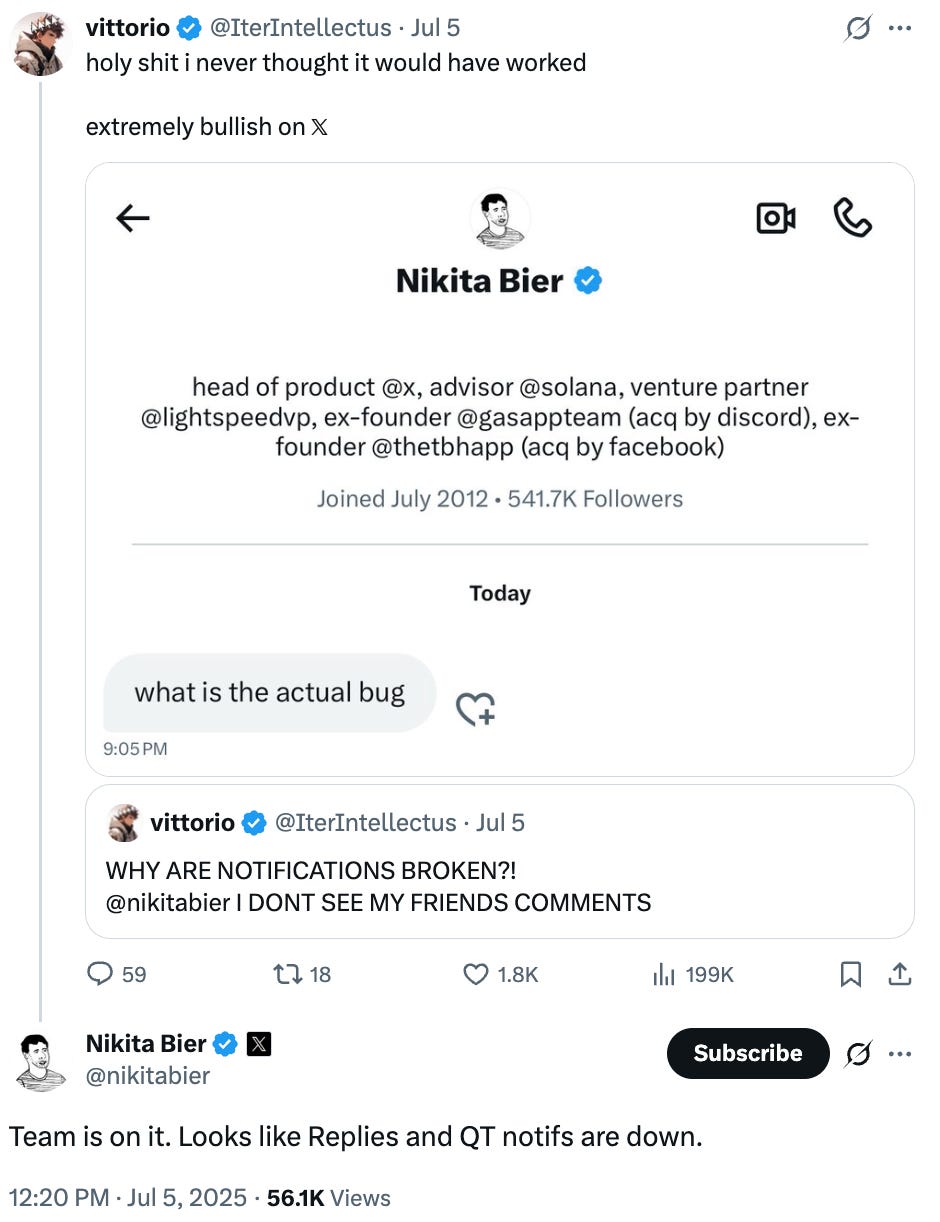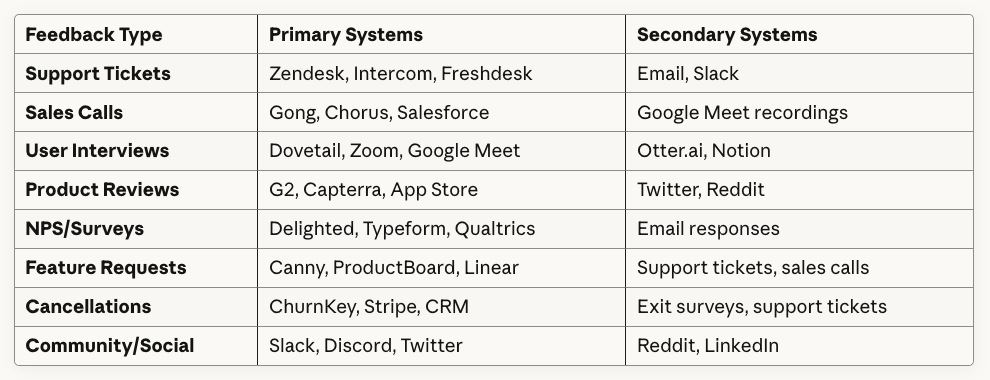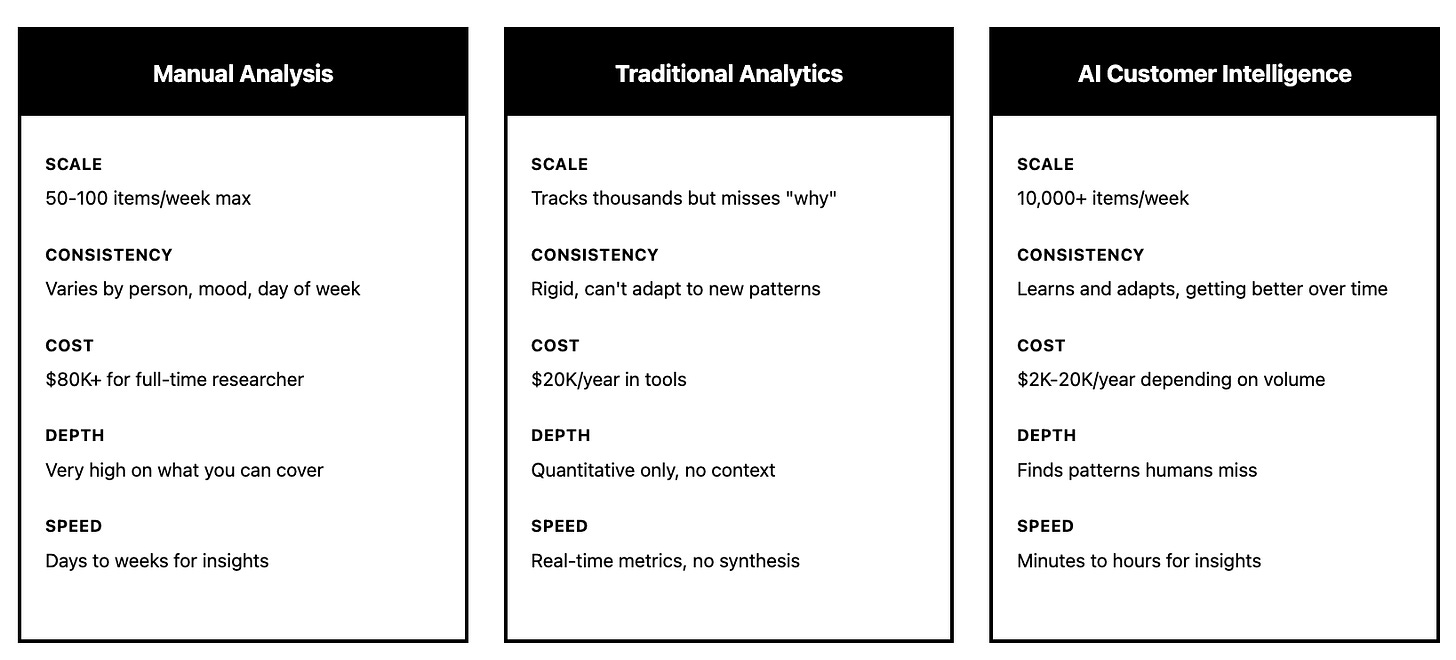AI Customer Intelligence: The Complete Guide for Product Teams
How to analyze 10,000+ feedback points per week and ship features customers actually pay for
Nikita Bier is the Head of Product at Twitter.
You see him doing everything right. Constantly engaging with users. Testing ideas in public. Iterating based on feedback:

He makes it look effortless, amazing, aspirational.
But here’s what nobody sees:
This is the story of every PM who actually cares about customers.
You want to listen. You know you should listen. So you try to read every support ticket. You watch user interviews. You monitor app reviews. You join sales calls.
And then you drown.
Because listening at scale is impossible without systems.
AI Customer Intelligence solves this.
📘 Definition
AI Customer Intelligence: The use of artificial intelligence to automatically analyze, categorize, and synthesize customer feedback from multiple sources (support tickets, sales calls, interviews, reviews) to identify patterns, quantify business impact, and inform product decisions.It’s one of the most important new categories of AI tools for PMs. Right up there with AI prototyping/ vibe coding tools like Cursor and Lovable.
These are tools like Dovetail, Enterpret, and Unwrap (comprehensive market map in section 3). They can process thousands of feedback points in seconds. They find patterns humans would never spot. They quantify impact by ARR. They connect dots across every channel.
Most importantly: they let you do great discovery without burning out.
This guide shows you exactly how.
Today’s Post
The types of customer intelligence that matter
How to integrate intelligence into your discovery workflow
The complete tools landscape (with honest comparisons)
Step-by-step tutorials to implement this week
How to get 10x value from these tools
1. The Types of Customer Intelligence That Actually Matter
Not all feedback is equal.
A feature request from a $500K/year customer carries different weight than the same request from someone on your free plan.
Support tickets tell you what’s broken. Sales calls tell you what’s missing. User interviews tell you why.
You want to, high level, find information about all of the below:
Pain Points: Where your product hurts users
Feature Requests: What users want that you don’t have
Competitive Intelligence: Why users choose competitors or consider switching
Churn Signals: Early warning signs that customers might leave
Product-Market Fit Indicators: Evidence you’re solving real problems
Here’s thee problem: This lives everywhere (literally). Different feedback types sit in different systems:
A manual approach to reading all this simply doesn’t scale. You can read a few sources per week. But you’re not getting to 1,000.
This is why traditional customer intelligence breaks at scale, and AI customer intelligence is the solution:
Humans are good at context. Nuance. Strategy. AI is good for pattern recognition at scale.
Real Example
A series C B2B SaaS I was advising had prioritized “performance issues” when I started working with them. They had 2,000 support tickets mentioning it.
But when we implemented AI Customer Intelligence, we found that, weighted by ARR, performance issues only comprised $200K of ARR.
Meanwhile, “missing SSO” appeared 34 times and comprised $2.4M of ARR.
They had been prioritizing the wrong thing the whole time.
How to Integrate This Into Your Discovery Workflow
So how do you integrate this into your product processes tactically, so you’re always prioritizing the $2.4M problems instead of the $200K noise?
Below you’ll learn:
The exact tools top PMs use (with honest comparisons)
5 step-by-step implementation systems you can build this week
How to get 10x value from these tools (most teams only get 20%)
Keep reading with a 7-day free trial
Subscribe to Product Growth to keep reading this post and get 7 days of free access to the full post archives.



